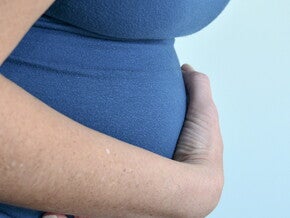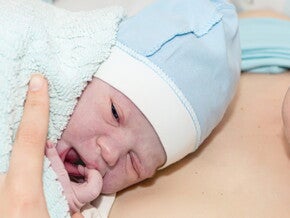
The pelvis and birth canal
The ligaments and cartilage in your pelvis relax, allowing greater mobility in the joints to increase the flexibility of the pelvis during labour and delivery. During the last weeks of pregnancy the vaginal walls soften and become more elastic. Vaginal secretions increase as the body prepares for the passage of the baby through the
vagina.
The baby
- During the last four weeks the baby’s head usually descends into the pelvis.
This lightening may relieve heartburn and your breathing may become easier. - When the widest diameter of the baby’s head engages, you need to urinate
more frequently. - The baby may move less frequently. Consult your caregiver if you are
concerned.
You, the mother
- As your due date approaches or passes, anxiety and depression are common, so try to keep occupied.
- Loss or levelling off of weight may occur in the last few days before labour.
- You may feel a spurt of energy about 24–48 hours before delivery.
- Some women experience diarrhoea, which is nature’s way of clearing the bowels in preparation for birth.
Consult your caregiver if you are concerned.
True and false labour
Before the cervix begins to dilate you may experience “false” labour. These contractions are different from the Braxton Hicks contractions. The comparison chart below will help you decide whether you are in labour. If you are unsure, call your caregiver or the midwife at your hospital.
| True Labour | False Labour | |
|---|---|---|
| Contractions |
|
|
| Show |
|
|
| Bowels |
|
|
| Emotions |
|
|
| into the ‘altered state’. |

















